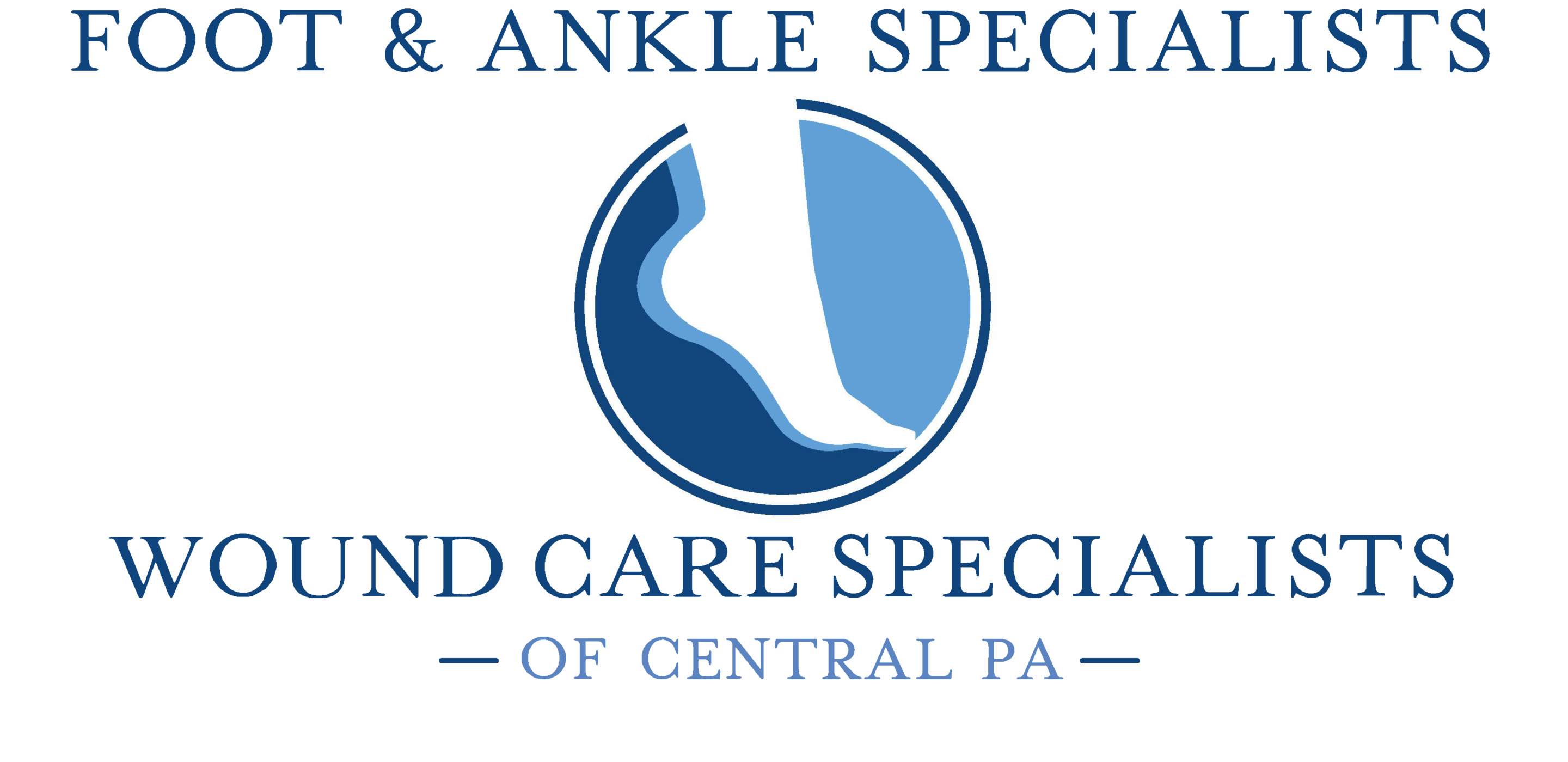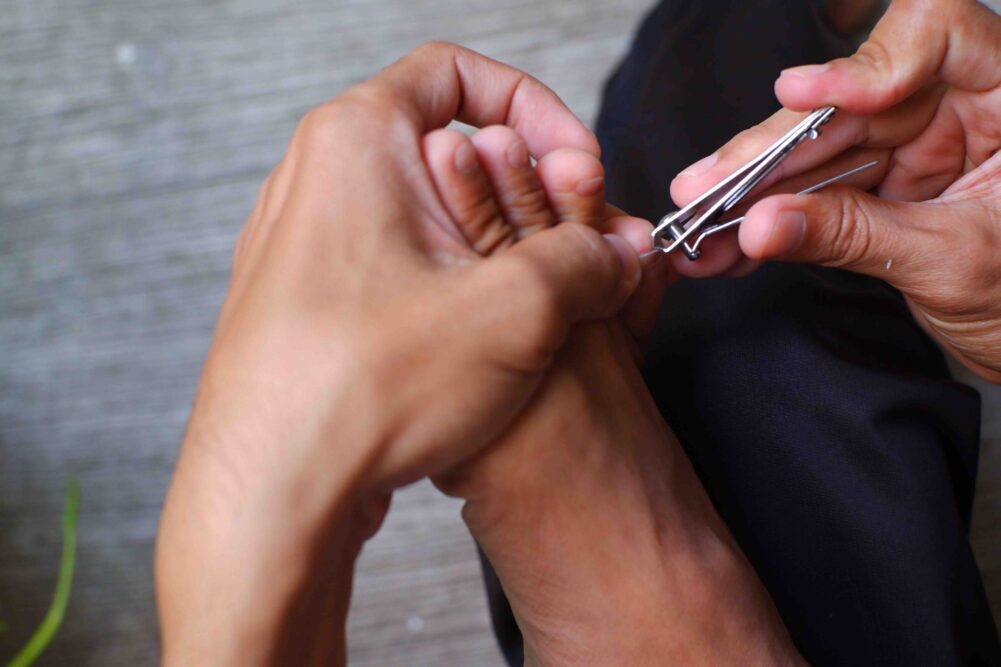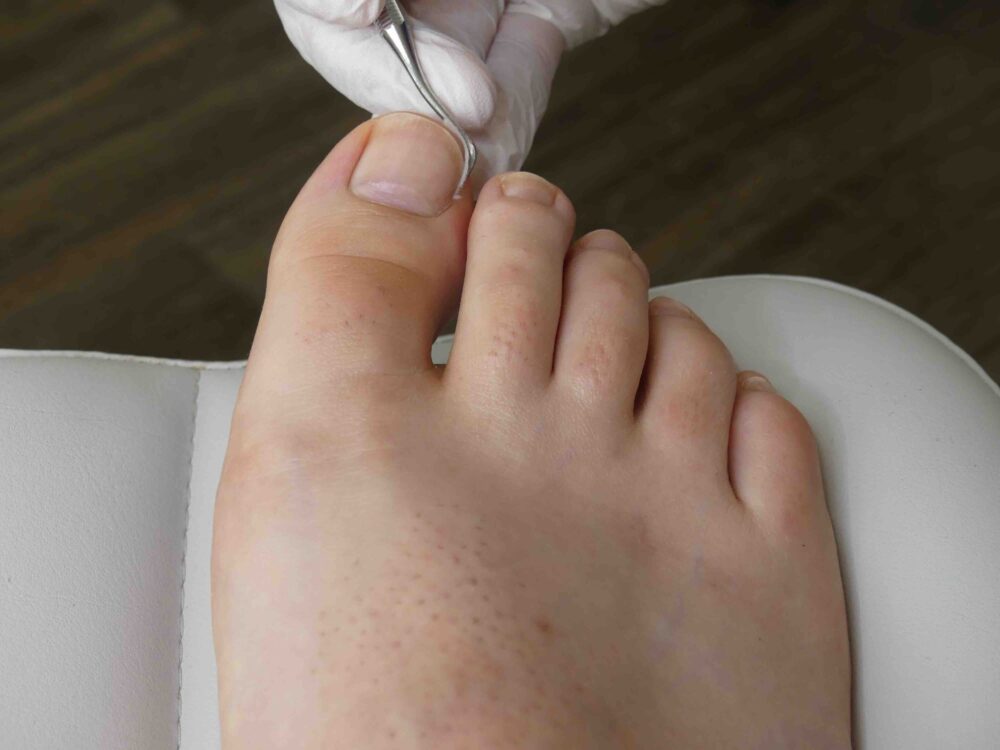Treating Ingrown Toenails at Home
Dealing with the discomfort of ingrown toenails can be a frustrating experience. While it’s always advisable to seek professional care from our podiatrists, there are certain steps you can take at home to treat ingrown toenails that are not infected and caught early.
In this blog post, we will explore effective home remedies for treating ingrown toenails and discuss when it’s necessary to seek professional care. At Foot & Ankle Specialist of Central PA, our team of expert podiatrists is here to provide you with relief and personalized care for your ingrown toenails.
What are Ingrown Toenails?
Ingrown toenails occur when the edge of a toenail grows into the surrounding skin, leading to pain, redness, swelling, and possible infection. They are commonly seen in the big toe, but they can affect any toe. Ingrown toenails can develop due to improper nail trimming, wearing tight shoes, injury to the toe, or even genetic predisposition.
What Can You Do to Treat Ingrown Toenails?
If you have an ingrown toenail that is not infected and caught early, you can try several home remedies to alleviate the discomfort. It’s important to note that these remedies are not intended for severe cases or infected ingrown toenails, which require professional care. Here are some steps you can take:
Soak Your Yoot in Warm water and Epsom Salt
Fill a basin with warm water and add Epsom salt. Soak your affected foot for 15-20 minutes, two to three times a day. The warm water helps reduce swelling and tenderness, while Epsom salt helps relieve pain and promote healing.
Use Dental Floss to Lift the Nail
After soaking, gently slide a small piece of unwaxed dental floss or cotton under the ingrown nail edge. This can help lift the nail away from the skin, providing relief from pain and preventing further irritation.
Apply Antiseptic Ointment and Cover the Nail
Clean the area around the ingrown toenail with mild soap and water. After drying, apply an over-the-counter antiseptic ointment to prevent infection. Cover the ingrown toenail with a sterile bandage or adhesive strip to protect it from further irritation.
Use Over-the-Counter Medication
Nonsteroidal anti-inflammatory drugs (NSAIDs), such as ibuprofen or naproxen, can help reduce pain and inflammation associated with ingrown toenails. Follow the instructions on the packaging or consult your pharmacist for appropriate dosage guidelines.
When You Need to Seek Professional Care for Ingrown Toenails
There comes a time when home remedies will not work and you need professional treatment for ingrown toenails. Here are reasons to contact our office for help:
Persistent or Worsening Pain
Persistent or worsening pain associated with an ingrown toenail should be a clear indication that it’s time to seek professional care. While some discomfort is expected with an ingrown toenail, if the pain intensifies or becomes constant, it may signal an underlying problem that requires medical assessment and treatment.
Our podiatrists will be able to examine the affected area, determine the exact cause of the pain, and provide appropriate interventions to alleviate your discomfort.
Increased Redness and Swelling
If you notice that the surrounding skin of the ingrown toenail becomes increasingly inflamed, red, or swollen, it may indicate the presence of an infection. Infections can occur when the ingrown toenail pierces the skin, allowing bacteria to enter the wound.
This can lead to localized inflammation and potentially spread to other areas if left untreated. Professional care is necessary to address the infection promptly, prevent it from worsening, and reduce the risk of complications.
Signs of Infection
Ingrown toenails that become infected require immediate attention from our team. If you notice pus, discharge, or a foul odor coming from the affected area, it is likely an indication of an infection. Other signs of infection may include increased warmth around the ingrown toenail, tenderness to touch, or the development of an abscess.
Ingrown toenail infections should never be ignored, as they can lead to more severe complications, such as cellulitis (a skin infection), the formation of an abscess, or the spread of infection to the underlying bone. Seeking professional care allows for proper diagnosis, appropriate treatment with antibiotics, and necessary wound management to promote healing and prevent further complications.
Remember, if you experience persistent or worsening pain, increased redness and swelling, or signs of infection related to your ingrown toenail, it’s essential to consult with our team as soon as possible. Delaying professional care can lead to prolonged discomfort, increased risk of complications, and potential damage to your foot health.
At Foot & Ankle Specialist of Central PA, our dedicated team is experienced in diagnosing and treating ingrown toenails. We understand the importance of timely intervention to alleviate pain, address underlying issues, and prevent complications. By seeking professional care, you can have peace of mind knowing that your ingrown toenail will be properly managed, allowing you to regain comfort and maintain the health of your feet.
Let us Help You Find Relief From Ingrown Toenails
At Foot & Ankle Specialist of Central PA, we understand the pain and frustration caused by ingrown toenails. We are here to help you find relief and provide the specialized care you deserve. We offer a comprehensive range of treatment options for ingrown toenails, ensuring that you receive personalized care tailored to your specific needs.
Don’t let ingrown toenails affect your daily life or cause unnecessary discomfort. If you’re experiencing ingrown toenails or suspect an infection, contact us today online or by calling us at 717-620-8225. We are committed to providing you with the relief you need and helping you regain the health of your feet. Take the first step toward pain-free feet by contacting Foot & Ankle Specialist of Central PA today.


